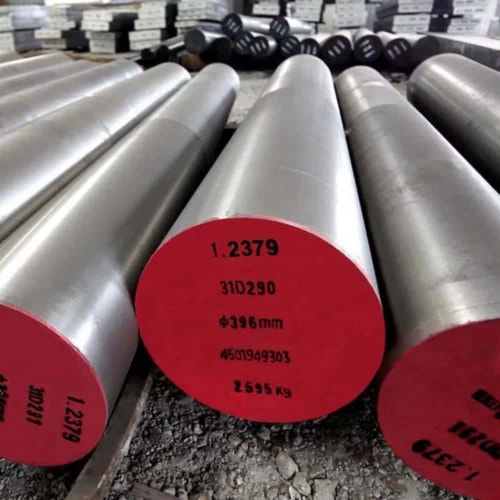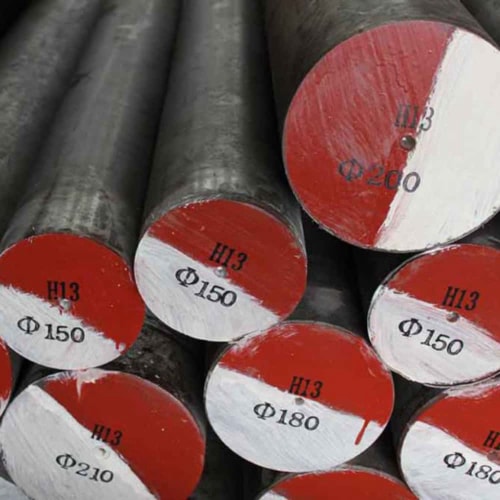Introduction

Special steels are essential materials in modern industry, prized for their exceptional properties that cater to specific needs across various sectors. This blog delves into the diverse world of special steel grades, exploring their compositions, unique properties, wide-ranging applications, challenges in production, and future innovations.
Understanding Special Steel
Special steels are defined by their exceptional properties such as corrosion resistance, heat resistance, and strength. They are often alloyed with other elements to enhance specific characteristics. Below are some common types of special steels and their applications:
| Steel Grade | Composition | Applications |
|---|---|---|
| Stainless Steel | Chromium, Nickel, Molybdenum | Aerospace, Automotive, Medical Instruments |
| Tool Steel | Tungsten, Molybdenum, Chromium | Cutting tools, Dies, Molds |
| High-speed Steel | Tungsten, Chromium, Vanadium | Drills, Taps, End mills |
| Alloy Steel | Chromium, Molybdenum, Nickel, Silicon | Automotive components, Structural parts |
Properties of Special Steel
The properties of steels are finely tuned through precise alloying and heat treatment processes:
- Corrosion Resistance: Stainless steels are known for their resistance to corrosion, thanks to high levels of chromium and sometimes nickel.
- High Temperature Stability: Alloys like high-speed steels and heat-resistant steels maintain mechanical properties at elevated temperatures, crucial for tooling and aerospace applications.
- Hardness and Toughness: Tool steels are engineered to withstand high stresses and abrasion, making them ideal for cutting tools and molds.
- Wear Resistance: Essential in components subject to friction and wear, such as gears and bearings.
Applications Across Industries
Special steels find indispensable use in key industries:
- Automotive: Used in engine components, chassis, and transmission parts for their strength, durability, and corrosion resistance.
- Aerospace: Critical for aircraft structural components, turbine blades, and landing gear due to their lightweight, high strength, and resistance to extreme temperatures.
- Medical: Stainless steels are favored for surgical instruments and implants due to their biocompatibility and sterilization capabilities.
- Tooling: High-speed steels and tool steels are essential for cutting tools, dies, and molds in manufacturing processes, where hardness and wear resistance are paramount.
Challenges and Innovations in Production
Producing steels involves complex metallurgical processes to achieve desired properties while maintaining consistency and cost-effectiveness. Challenges include:
- Metallurgical Control: Achieving precise alloy compositions and microstructures to optimize mechanical properties.
- Environmental Impact: Innovations focus on reducing energy consumption and emissions during production and developing recyclable alloys.
- Cost Efficiency: Balancing material performance with production costs through advanced processing techniques and alloy design.
Challenges in Special Steel Production

Producing high-quality special steels presents several challenges that require advanced metallurgical techniques and stringent quality control:
- Precise Alloy Composition: Achieving the exact alloy composition is crucial for imparting desired properties like corrosion resistance, high temperature stability, and mechanical strength. Small variations can significantly affect performance.
- Heat Treatment Complexity: Special steels often require precise heat treatment processes to attain optimal hardness, toughness, and other mechanical properties. Controlling factors such as heating rate, soaking time, and cooling rate is essential but challenging.
- Microstructural Control: Fine-tuning the microstructure through controlled cooling and alloying elements is critical. This ensures the desired balance between hardness, toughness, and other properties necessary for specific applications.
- Environmental Impact: The production of steels involves energy-intensive processes that can have a significant environmental footprint. Innovations focus on reducing emissions, energy consumption, and waste generation through sustainable practices and recycling initiatives.
- Cost Considerations: Steels often involve higher production costs due to the complexity of alloying and heat treatment processes. Balancing performance requirements with cost efficiency is a continual challenge in the industry.
Conclusion
Special steels play a vital role in advancing technology and meeting the stringent demands of modern industry. Their unique properties enable engineers and manufacturers to push the boundaries of performance and durability in diverse applications. Understanding the specific characteristics and applications of each steel grade is crucial for leveraging their full potential in engineering innovations.
FAQ
Q: What are the main advantages of using special steels over conventional steels?
A: Special steels offer superior properties tailored to specific applications, such as corrosion resistance, high temperature stability, and enhanced mechanical properties.
Q: How are special steels classified?
A: Special steels are classified based on their alloy composition (e.g., stainless steel, tool steel) and their intended application (e.g., automotive, aerospace).
Q: What industries benefit the most from special steels?
A: Automotive, aerospace, medical, and manufacturing industries benefit significantly from special steels due to their unique properties and performance advantages.
